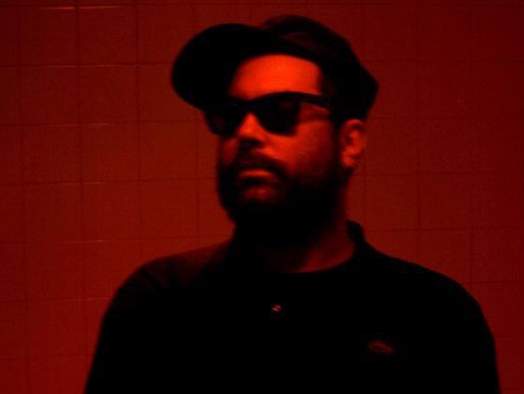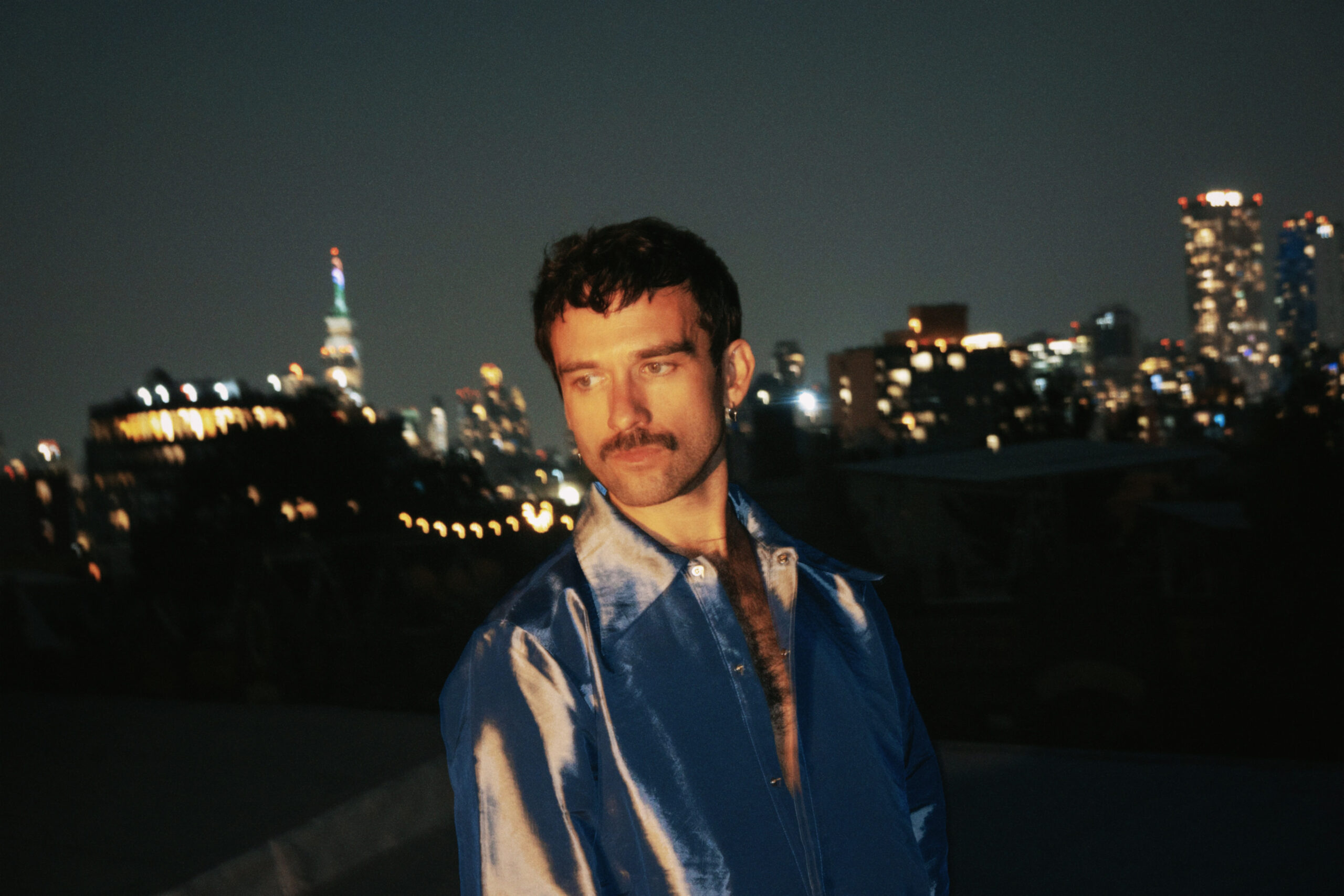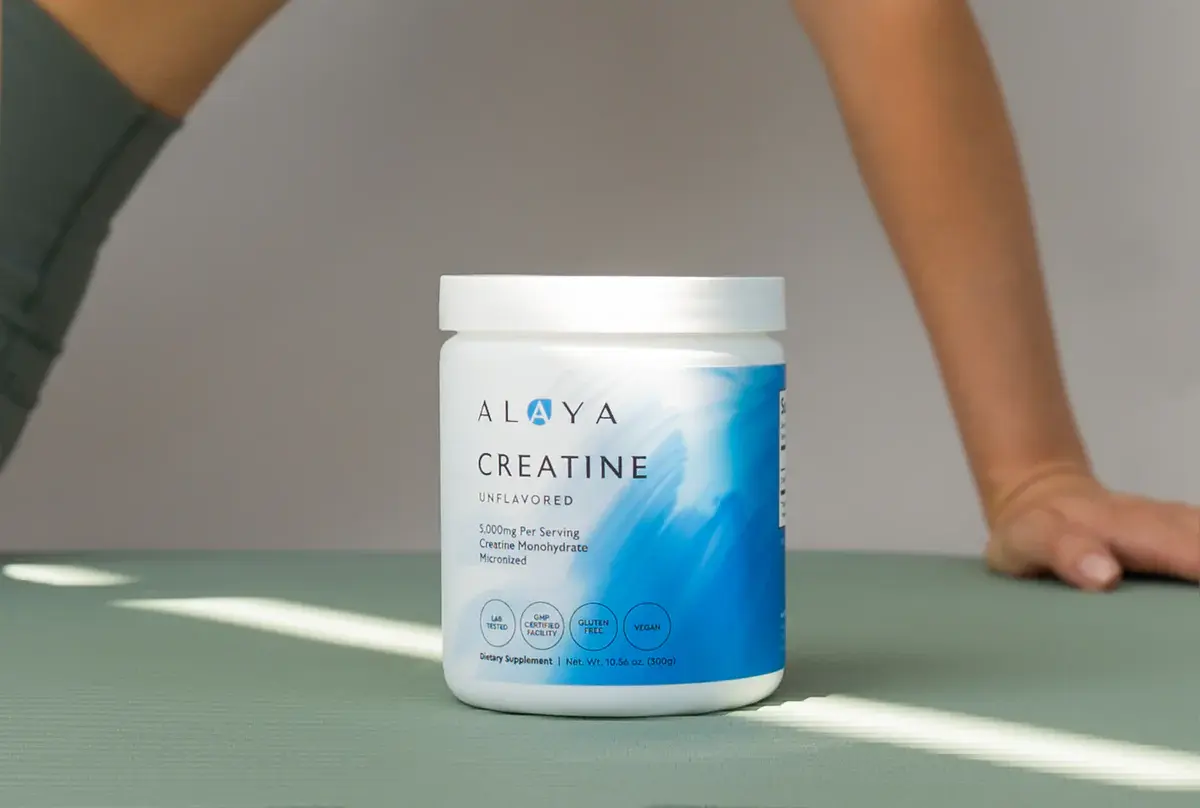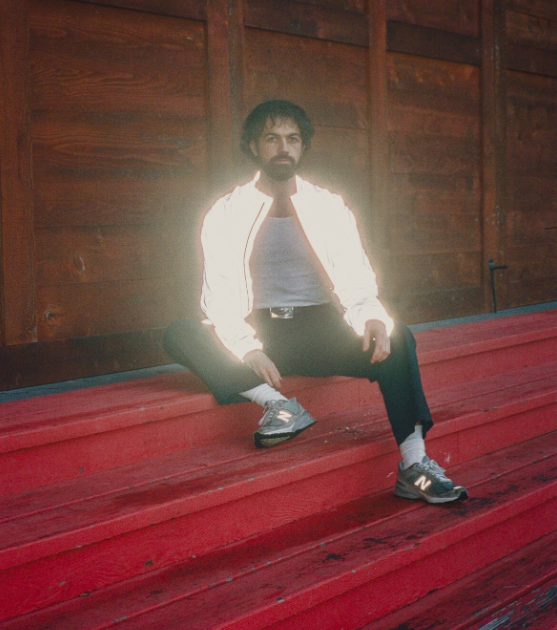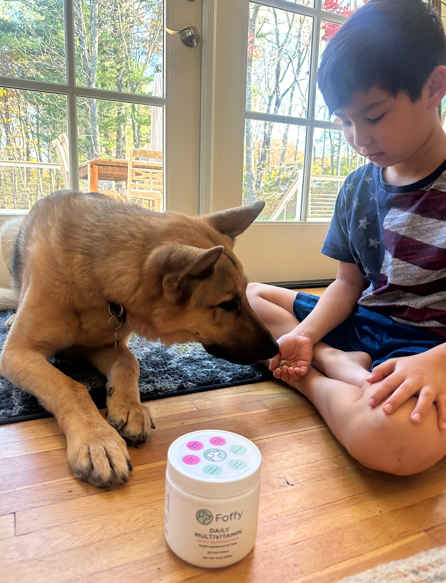Film
Exclusive Interview: Weiming Wang on the Future of Film, Vertical Storytelling, and Bridging Art & Algorithms
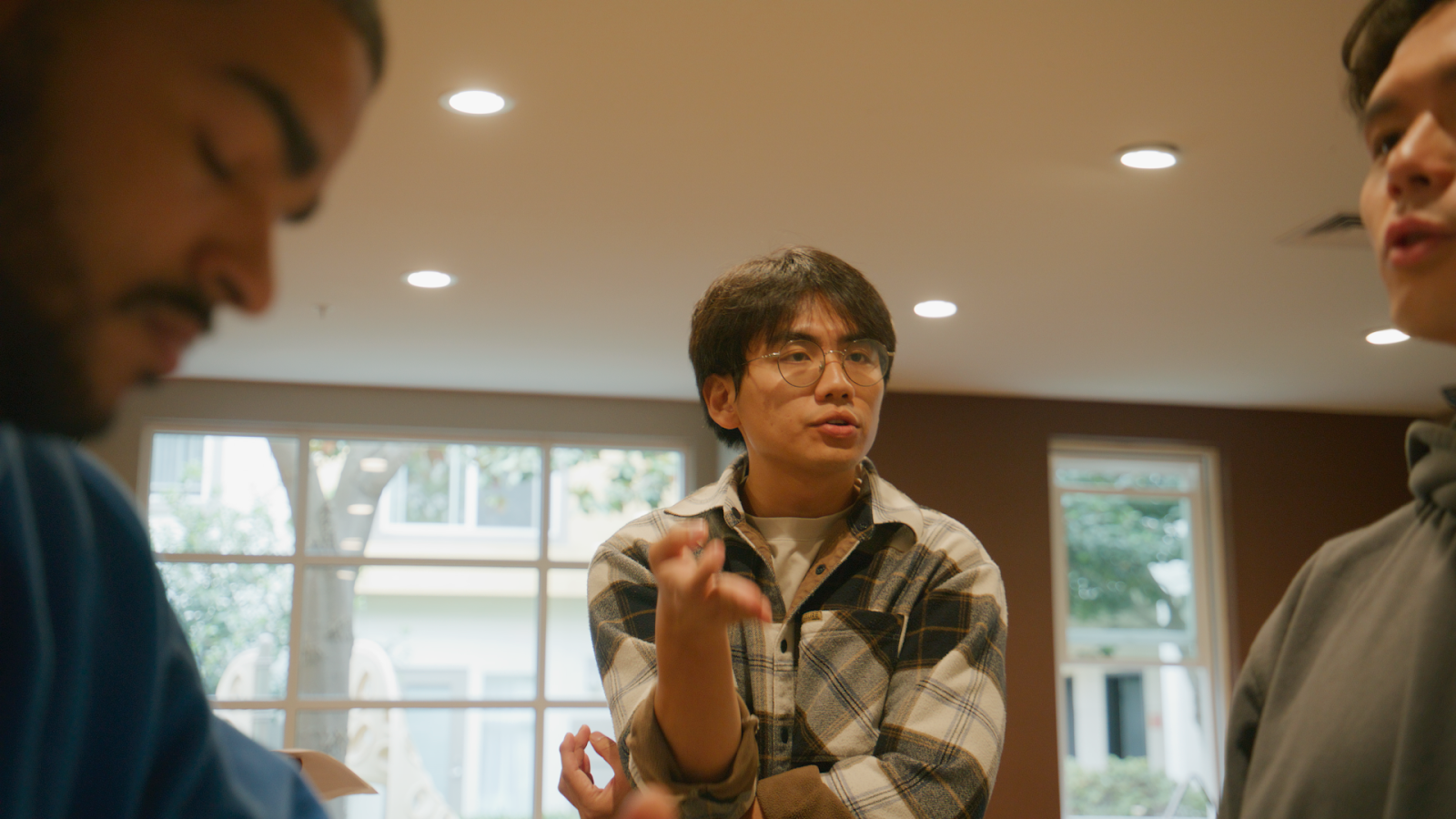
Cinema is evolving faster than ever. Between streaming wars, the rise of short-form storytelling, and the resurgence of festival-driven art films, the boundaries between screen and story are dissolving. Audiences want intimacy and immediacy — a film that feels handcrafted but scrollable, profound but shareable. From TikTok thrillers to Sundance indies, we’re living in a moment where the future of film isn’t defined by length or format, but by emotion and innovation.
That balance between art and algorithm is where Weiming Wang thrives. The Los Angeles-based producer has built a career bridging arthouse precision and platform-savvy storytelling, mastering both the indie festival circuit and the booming world of vertical short dramas. His projects span from Sorry, We’re Dead — which earned multiple festival awards, including Best Feature at Prison City — to viral mobile hits like Got Pregnant with Ex-Boss’s Baby, which surpassed a staggering one billion views across platforms. With an eye for narrative architecture and emotional design, Wang’s work blurs the line between cinematic poetry and data-driven precision, proving that storytelling can still thrive in every format.
We chatted with Weiming about his dual-track career, the emotional logic behind viral short dramas, and how he’s redefining what it means to be a producer in the age of endless screens.
Let’s start from the beginning—what first drew you to filmmaking?
I started out as an editor. I was fascinated by how rhythm and image could express truths that words couldn’t—desire, shame, freedom. I had a lot of fun exploring these unspeakable desires.
But at some point, I realized how little I could actually control if I stayed only at the end of the production chain. So I began moving upstream—toward the place where every decision begins. From then on, I didn’t just want to edit stories; I wanted to design the mechanism that makes stories possible.
Your career now runs on two tracks: the film-festival circuit and commercial short dramas. Why both?
Art-house films keep me intellectually grounded; short dramas teach me the grammar of the marketplace. Sorry, We’re Dead proved that narrative craft can travel through festivals, while My Ex-husband Can’t Stop Spoiling Me reached over 500 million views on SnackShorts, Got Pregnant with Ex-Boss’s Baby surpassed 1 billion cumulative views across platforms, and After Divorce: I Become Heiress gained 47 million views on Dramabox. Each success helped me test how emotional clarity can scale from a theater audience to hundreds of millions of mobile viewers.
How would you describe your filmmaking style in a few words?
Emotionally raw, structurally precise, performance-driven. I build narratives around emotional peaks and reversals, letting empathy and tension collide—so the work can live in a theater or on a phone screen without losing its spine.
What kinds of stories do you gravitate toward—and why?
Stories about identity under pressure—how people redefine themselves when the rules collapse: queer desire, migration, illness, gender, power.
That’s why American Double Joy matters to me—it centers on Asian LGBTQ+ lives in the U.S. and was selected by Wicked Queer: Boston’s LGBTQ+ Film Festival (Oscar-qualifying). My short Love to Phallus and my directorial debut Accompany—which earned Best New Director at FICIMAD (Madrid)—are different angles of the same question: when the world stops providing certainty, how do we rebuild ourselves?

Some say short dramas are purely algorithmic. What’s your take?
The algorithm amplifies; it doesn’t invent. We first design emotional structure—setup → reversal → payoff—tailored to mobile attention spans.
For Got Pregnant with Ex-Boss’s Baby, we pre-built multiple “high-voltage” scene edits for A/B testing. Some of these clips alone exceeded 2 million views per cut, feeding viral loops that drove total views past 1 billion across SnackShorts and ReelShort. But what truly made them work wasn’t the metrics—it was that the characters’ emotions genuinely mirrored what many North American viewers were feeling inside.
How do you stay inspired while managing so many projects?
By constantly switching scale and tempo—features slow me down to listen; short dramas speed me up to decide.
More importantly, I rely heavily on my support system for micro-management between projects.
Since moving to LA, I’ve worked closely with local filmmaker Dylan Skye, whose patience with every production challenge gives me complete trust. I often collaborate with Christian Gonzales as assistant director or director. They’re both outstanding filmmakers and the backbone of every smooth production.
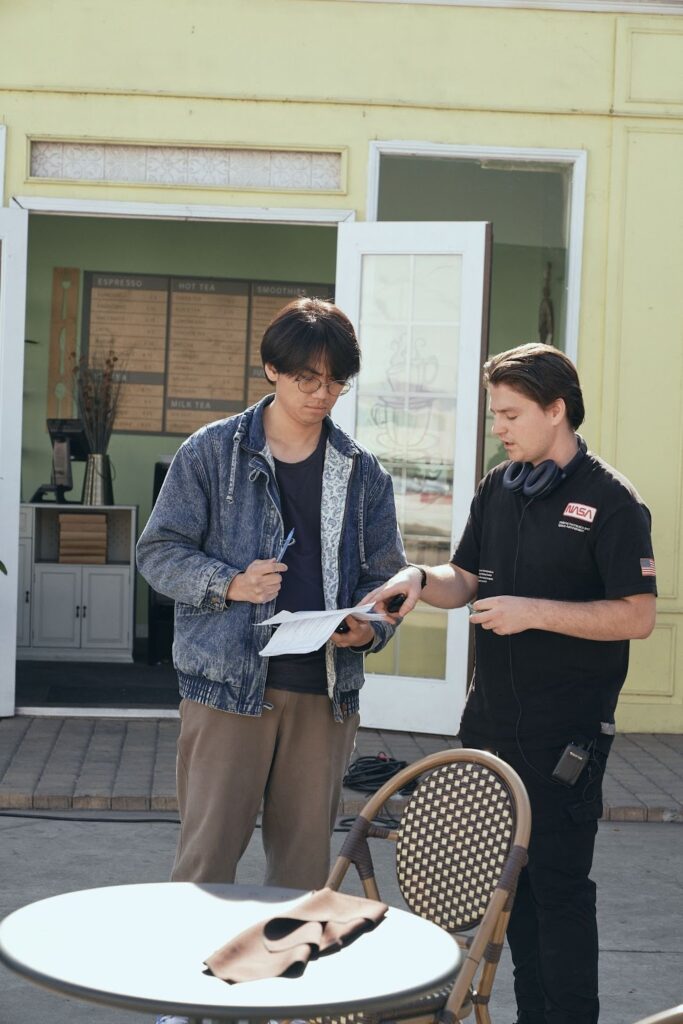
You’ve had significant festival success. What’s your curation and rollout philosophy?
Match the story to its ecosystem.
For Sorry, We’re Dead—a dramedy exploring ADHD and reality slippage—we built a path balancing experimentation and audience access: selections at Seattle Asian American FF, Orlando FF, Rhode Island IFF, SF IndieFest, and more, plus Best Feature at Prison City FF.
Marketing followed a layered model: core materials + regional derivatives, and a three-step rollout—festival premiere → regional expansion → community amplification. That’s how art circulates without isolation.
As a producer, where do you feel you make the biggest impact?
By translating vision into execution.
On Sorry, We’re Dead, I started with script evaluation and audience segmentation, establishing a conflict-peak-afterglow rhythm model for key sequences—always within budget and union limits.
In post, we tuned edit density and score curves for target cohorts. On short-drama projects, I synchronize creative strategy, release windows, and asset packages so the fragment → click-through → completion → retention chain remains seamless. Producing, to me, is connective tissue.
If you had to summarize your “dual path” in one snapshot—what would it be?
One week I’m reviewing a festival cut; the next I’m exporting high-impact vertical scenes for global feeds. My Ex-husband Can’t Stop Spoiling Me passed half a billion views, Got Pregnant with Ex-Boss’s Baby crossed a billion, while Becoming Vera won Best Narrative Feature at Manhattan, Audience Choice at Cinequest, and Best Local Film at Miami. That contrast—between red carpets and dashboards—is the bridge I’m building: art and market in dialogue.
If you had unlimited resources, what would be your dream project?
A cross-platform anthology about intimacy and power in the digital age—each chapter told in a different form: a feature film, a vertical short series, and a documentary essay.
Same universe, different grammars. The goal is to prove that emotional truth is format-agnostic.
What’s next for you?
First, I’m leading IMC Film Production’s DVST Vertical Drama Project, a three-year plan to build the male-audience vertical market. We’re developing eight titles a year across action, suspense, and psychological drama. My role is to oversee the full pipeline — development, budgeting, scheduling, and creative alignment — ensuring that each project balances commercial appeal with a strong artistic identity.
At the same time, I’m heading IMC’s move into premium commercial production, following our collaborations with brands like American Express Platinum Card and DESCENTE Golf. I’m building a content model that combines cinematic storytelling with brand strategy, aimed at high-net-worth audiences.
In addition to my work at IMC, I’ll also be producing Alex Zajicek’s next feature film over the coming three years. After our collaboration on Sorry We’re Dead, I’m excited to continue shaping a project that pushes independent cinema forward — both creatively and strategically.
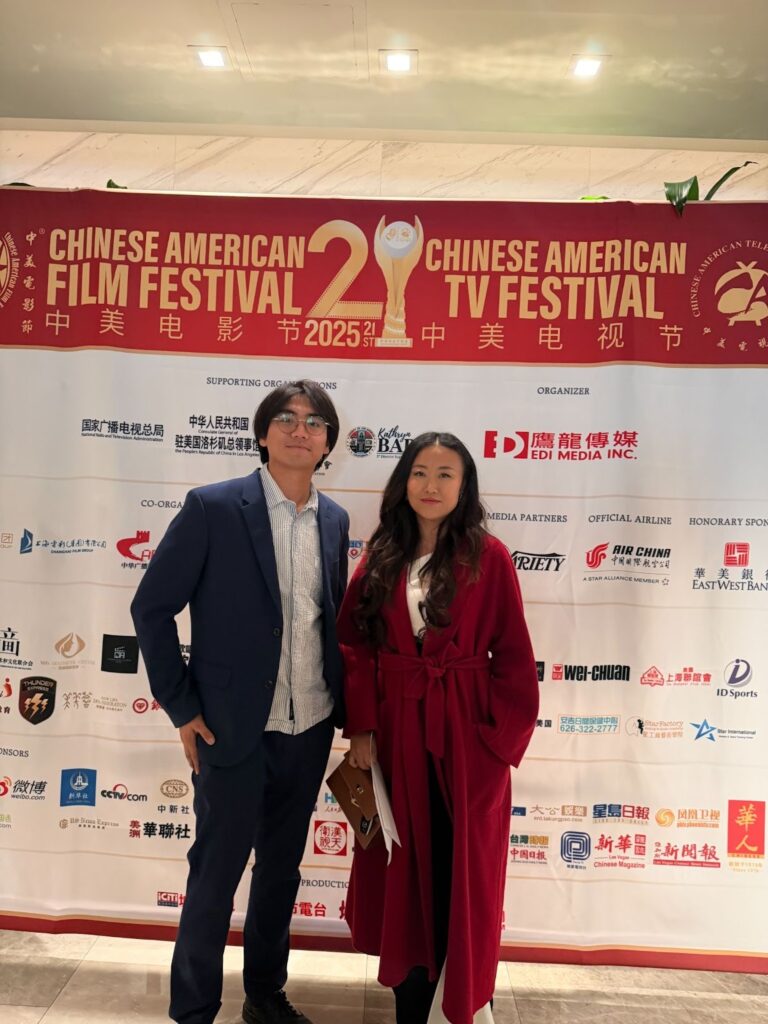
In short, my next chapter is about shaping three emerging spaces: male-driven vertical dramas, luxury commercial storytelling, and a new wave of independent feature filmmaking — and helping IMC Film Production grow through all three.





